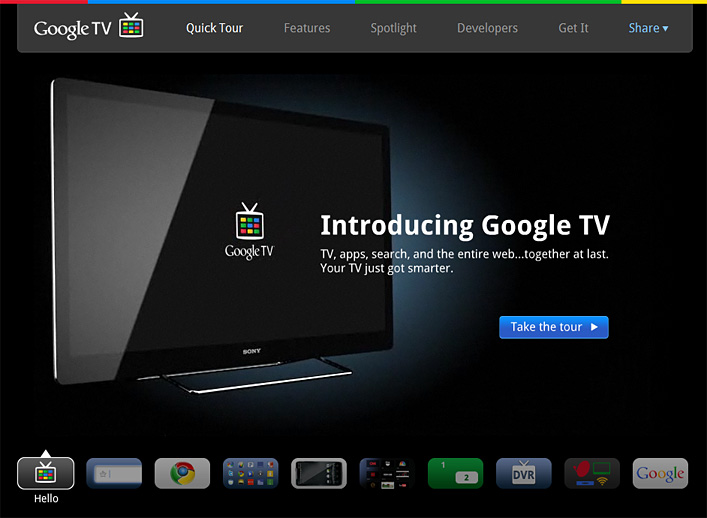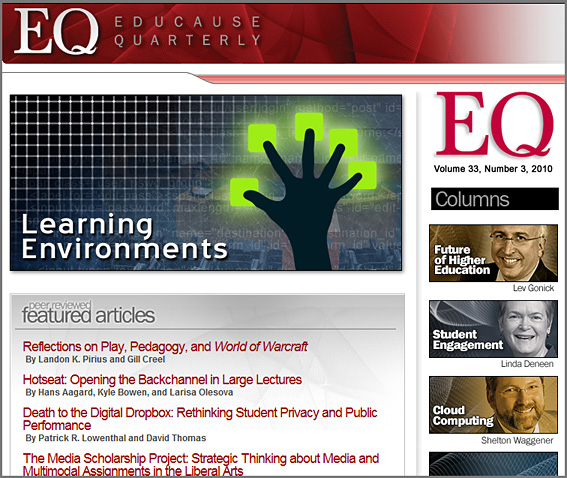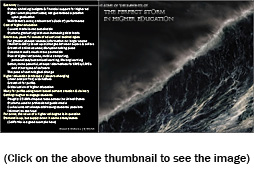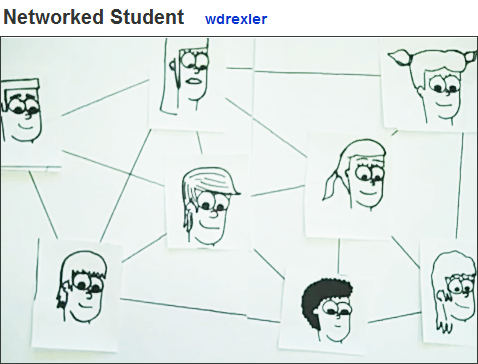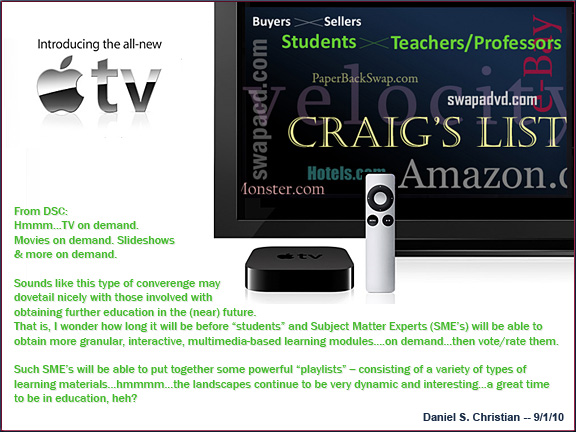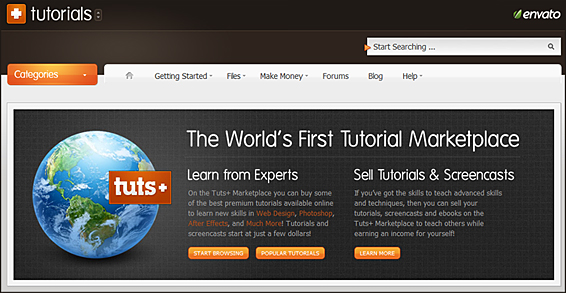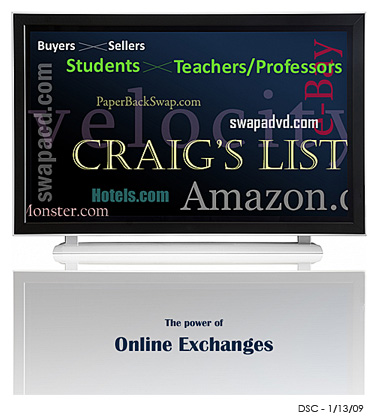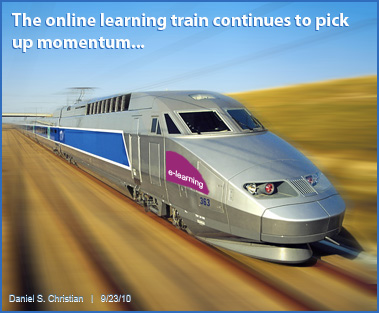
Surprising facts about online education — from DegreeScout.com [via dontwasteyourtime.co.uk]
Online education is quickly becoming a prominent and important piece of the education pie in the United States. The explosive growth of this segment of education, even during a recession, is nothing short of spectacular. It is becoming clear that there is a fundamental shift in how Americans are being educated after high school. The flexibility, lower cost, and variety of choice are just some of the reasons that online education is growing at its current pace. The following infographic will give you a better idea of the scope, impact, and future of online education. Enjoy!
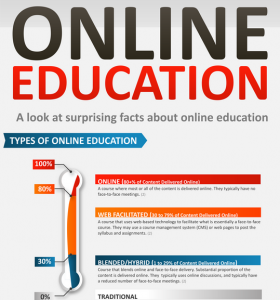
Also see:
The Khan Academy now on iTunesU [via openculture.com]
The Khan Academy, which already has a robust presence on YouTube and the web, now opens up shop on iTunesU. This gives students yet another way to access 1800+ video tutorials that teach the ins-and-outs of algebra, geometry, trigonometry, calculus, statistics, finance, physics, economics and more. The lectures, all taped and presented by Sal Khan, a Harvard MBA and former hedge fund manager, are watched some 70,000 times per day. And, with this new distribution channel, the numbers only promise to move higher. For more on The Khan Academy, see this August CNN piece. To download iTunes, click …
Khan Academy content available for download [via M. Guhlin]
At the start of the year, a Math teacher specialist pulled me aside and asked me, “How come all these awesome videos are blocked?” As we tried to access the different videos, I finally pulled up the web site–The Khan Academy–and noticed that the majority of the content was located at …
Teacher Development: Starter Kit for Teaching Online — from Edutopia.org by Grace Rubenstein
Expert advice on shifting from brick and mortar to bytes and bits.
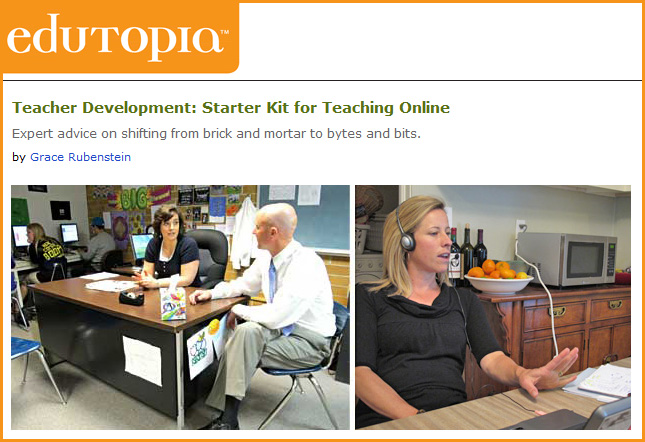
.
Bellevue College launches program to teach educators about online learning — — [via Ray Schroeder] by the Bellevue Reporter
Bellevue College is launching a new “eLearning for Educators” professional development program for K-12 and college teachers who wish to bring the benefits of online learning to their students. “eLearning” is a broad term that includes all forms of teaching and learning that are supported or enhanced by digital technology. The new program at the college teaches educators how to integrate new instructional technology into their courses, whether they teach in a traditional “in-class” venue, a fully online setting or in a hybrid format that blends the two …
Students Are Motivated to Take Online Courses — [via Ray Schroeder] by edreformer.com via e-learning news blog
Susan Patrick, President of iNACOL writes into the Chicago Tribune to voice her support for online learning initiatives in Chicago Public Schools. She finishes off her letter with a valid point, that students actually are motivated to take online courses, because they like it, and because online better influences their learning. What’s more, students want to learn online: a national study showed 40 percent of middle and high school students want to take online courses. Despite what critics say, there is no evidence that children in online or hybrid classes are any less socially adjusted than those children who attend brick-and-mortar, traditional …
Also relevant:









